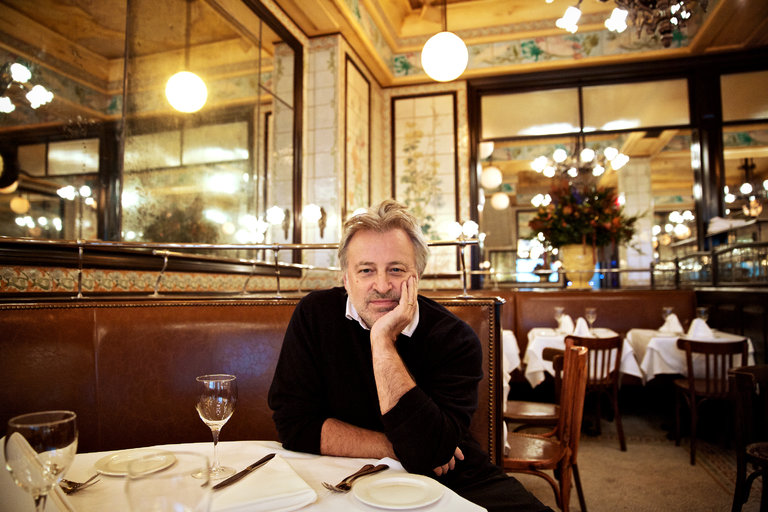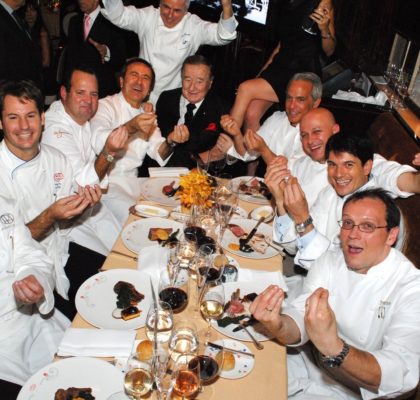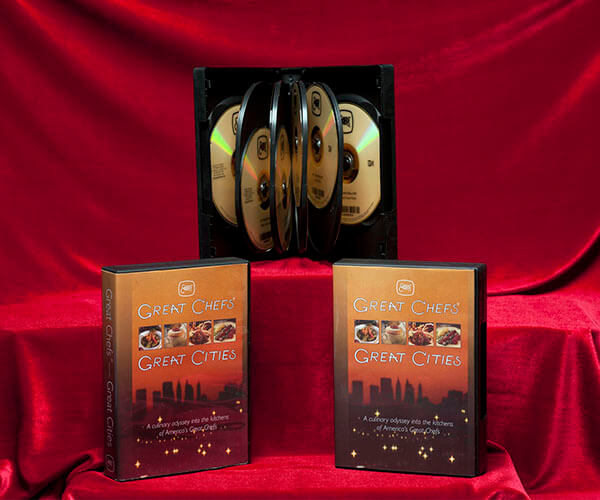It’s at this point that I vow never to open another restaurant. The rents are too high, the bureaucracy too overwhelming and the New York critics too severe. But months pass, and gradually I begin to have the semblance of an idea. An idea to build a restaurant that could, under the right guidance, be the most sublime restaurant imaginable.

Last week, the Food section published an article detailing, in hard numbers, how daunting the financial climate is for restaurateurs in New York. But Keith McNally, who has opened more restaurants than most, and kept most of them open, believes that money is only part of the equation.
In many ways I’m sick of restaurants. Even so, on Tuesday I plan to open Augustine, my 14th in 36 years.
The first was the Odeon in 1980, which I opened as a bit of a lark, something to fill in the time while I decided on my future. I’m 65 and still deciding on my future. The only thing I’m sure of is, I don’t want to sound like 65.
Which is why I avoid saying what I believe: that restaurants were easier to build and a whole lot more fun in 1980 than they are today.
In 1980, health and safety laws weren’t as stringent as they are now, and neither was the law protecting employees from sexual harassment. The first time I heard of a customer having an allergy was in the mid-’80s (the staff started laughing), and food poisoning became a restaurant issue for me only in the ’90s. (Of course, it was an issue before then, but the complaints never reached me — possibly because those poisoned by eating at my restaurants died before they were able to reach the health department.)
Sex among the staff has also gone out the window. Well, not entirely. But as an owner, I’m legally bound to pour cold water on the idea the day someone new is hired. Seeing as I met my two wives in restaurants (not simultaneously), I often wonder if I’d met them in today’s climate, would I have been forced to steer clear of them? Had that been the case, they probably would have been far happier women today.
And if in 1975 I’d been discouraged from consorting with the opposite sex, I’d probably have left the restaurant profession for a more promiscuous one. Politics, perhaps. Either way, it’s difficult not to be anything but fully supportive of a system that protects employees from harassment. But, remembering what it was like to be in my 20s, I believe it’s also important not to throw out the baby with the bathwater.
One crucial change that’s hurt restaurants in Manhattan is the drastic rise in rents. During my first 30 years as a restaurateur, I expected to pay around 7 percent of my income on rent. Today, it’s at least 14 percent.
The worst effect of this increase is to discourage the more interesting restaurateurs — those young, vital and bursting with new ideas — from opening places in Manhattan. This is an incalculable loss to the life, in particular the creative life, of the city. It’s also why many of the most dynamic new restaurants (and certainly restaurateurs) are now in Brooklyn and upstate. Why this has been allowed to happen I’m not sure, but it’s far from healthy.
Considering the intrusive role that landlords, lawyers and city officials now play in operating a restaurant, it’s a wonder that people still open them.
In my case, it’s partly to pay the bills but mostly a result of an urge to correct the mistakes I’ve made with previous restaurants. Despite their relative success, there isn’t one that doesn’t possess elements that make me wince every time I enter the space. A salad overdressed, a mirror poorly hung, a reviewer’s criticism I can never forget.
The only way I deal with this is to start this mad, and madly expensive, process all over again: finding a space, signing a lease and starting on what is usually a two- to three-year project.
It’s when a restaurant is under construction and untouched by the outside world — when its possibilities are infinite — that I’m most happy with it. I’m convinced that the restaurant, without a stove or table in place, will be a colossal success. The walls are still to be plastered, but confidence is so high that my only concern is writing an acceptance speech — one that’s appropriately modest — for the James Beard Award that, at this stage, seems inevitable. (I know a shoo-in when I see one.)
Eventually, after years of sawdust and scaffolding, the restaurant opens and the bloggers, critics and public arrive and have their say. It’s never what I want or expect, and within weeks of creating a masterpiece, I’m left scrambling to salvage the pieces. And the James Beard Award that was within touching distance a month earlier is now drifting out toward the Indian Ocean.
Reviews are almost always disappointing, even the good ones. But they’re the way of things, and one must accept them. And I do. Usually by praying for the reviewer to be pulverized by a hit-and-run driver who is possibly my cousin. Then I become more philosophical, and realize he doesn’t have to be my cousin
Yes, I’ve said this before, but this time it’s different. This time it’s the real thing. I’m sure of it.
Augustine, Beekman Thompson Hotel, 5 Beekman Street (Nassau Street).










